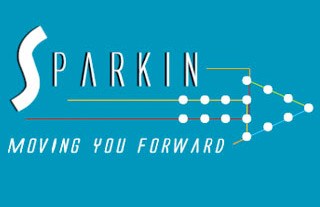‘Unique’ Candidate Raincheck
Some candidates believe when compared to others, like the glowing waves. what they have to offer is quite unique.
What can enhance the chances of this being true is something regularly practiced by the best candidates, who always seek feedback after interviews/They always seek to improve.
Really smart candidates learn from the new found knowledge and adapt.
The smartest candidates of all, (who always end up with serious consideration, if not the job) know that even when they apply the lessons of the past and do everything they can and what they offer is very differentiated, sometimes still, they won’t be hired!
They know that this is not because they did anything wrong but because every opportunity is unique, (just like them) and simply, in some cases there was an even better ‘unique’ fit for the role.
Avoiding A Career Ambush – Be Alert and Bring Your ‘A’ Game

Strategic planners on the fastest career track know that getting to the truth of a client’s challenge is key. It’s is equally vital to understand the truth of the consumers served by your clients.
Getting to a genuine understanding of your client’s business gives you a chance of being relevant and better still, of moving the client forward.
In one of life’s great paradoxes, the strategic planner plays the role of the cobbler that wears no shoes/do not do for themselves what they instinctively do for others. That is, apply the same strategic nous and tools to obtaining authenticity when it comes to understanding a genuine career opportunity from a dud.
I hear of almost daily tales of candidates that got duped. But, the storytellers typically don’t see that they are complicit.
New career enhancing roles lie before them and rather than clarify the fundamentals that will define their success in a new role, much is taken at face value. Naiive? Or, a commendable illustration of their trust? It doesn’t matter. The carnage is the same.
Some basics. Whenever you are considered for a career opportunity, it is your knowledge and experience that is sought after. It is perceived to be able to solve one of a range of challenges facing your prospective future employer.
Ultimately what your future employer is seeing is your ability to either help save or make money and preferably both! And this is where it can get dangerous, for you!
The more your perceived ability to make money combined with urgency by the agency to make a hire, the more exponential the chances that they will avoid communicating, miscommunicate or incorrectly communicate information that might otherwise deter you from taking the job.
I don’t mean to say that hiring managers intentionally mislead. I am saying that many people under enough pressure, hiring manager or agency with a pressing client need, may be economical with the truth. This may help relieve client pressure whilst unfortunately not be optimal for you.
The Group Director hired to become a Head of Strategy takes the job because the agency is independent, moves countries and finds out one month in that the agency is being bought by a holding company.
The Director that moves across country to discover one month in that the client, that they moved their lives for, is leaving the agency.
Clearly the agency has to do what it has to do and perhaps the hiring manager or the department head is not party to much larger forces at play. The take out is therefore, you as the individual seeking a career enhancing move have to be alert!
You have to employ that smart truth revealing expertise to your career and most certainly at the inflexion points of progression from one job to another.
To be fair to those hiring, the more ‘you’ want an opportunity at a certain brand or agency, the more you will compromise, the more details you will overlook, the less you will be ‘on your game’ to understand exactly what you might be getting in to.
Indeed, far from applying healthy skepticism that engenders a pragmatic understanding that what one is being told is correct, you seek to reinforce your perceptions of what you want to hear. And, you fail to see the pitfalls.
When you are ‘on,’ you do not ask limiting questions but bigger questions in your quest to understand the truth. You in this mode are in control and driving your quest versus passively being drawn into a career ambush.
Getting to a Robust Understanding of a Job Opportunity – Some thoughts
- Know what do you want to do next
- Know what outputs you want to generate
- Know what defines your success in a new role
- Know what resources are available and timelines in which to achieve specific goals
- Know whether your goals align with those of the leadership of the prospective employer.
- Seek out not ‘sexy’ agency but dynamic client relationships, wherever they are and with them the opportunity for good work
- Seek out those clients that value your expertise and better still the employers that value your expertise equal or (even better for you) over and above other disciplines.
- Clarify where money is made – This is definitive proof as to what the agency says is does reconciles with what it does.. Good to know!
- Ask better questions that reveal the truth to you and not choreographed answers.
How to positively manage the effects of sudden changes in a new job
I regularly receive calls that talk to an individual having started a new job and a few months in, it is unrecognizable from expectations, not simply because of a changed challenge but in terms of what was promised about people, the value of their expertise in the agency/company, the culture, resources, leadership and clients. The boss that hired you leaves, the client it turns out is completely unreasonable and/or not embracing the value your expertise can bring and/or, the function you represent period, for example strategic planning. And, the department of which you are a part, doesn’t seem to have any practical leadership. These are just a few examples of challenges I’ve heard someone newly employed describe to me as they asked what they should do.
Now, it’s true, situations in the agency and business world can and do change very quickly. The role you were hired for can become manifestly different. Where you confront such a situation in a new role (1-3 months) you should ask yourself the following three questions:
Is the change significant enough that you believe you cannot be effective in the new role?
Can you through discussion alter the changed circumstances so that you can be effective?
Is there an opportunity for professional progression/a chance to develop your expertise even with the changed circumstances?
If the answer to all the above questions is “no,’ you should leave the role. If you take no action you are very likely going to go around in circles as you fail to direct your career. A better approach, whether you leave depends on rationalizing a course of action based in my opinion, on three factors: Your sanity; Your reputation; Your resume.
Sanity
More important than your reputation or resume is your state of mental health. Being in a situation for which you are unprepared, unsuited or simply don’t desire can adversely affect your mental state of mind. Extreme stress arises due to a complete lack of support or from a role or circumstances significantly different from those you believed you were being hired for. In such a situation if you cannot, even after talking with someone you trust, get clarity or assurance that the job you are being asked to perform will, in some timeframe align with that that you were hired for, then you should seriously consider leaving the agency.
Reputation
Whenever you are delivering a product or service you have been paid to deliver, the consistency and quality of that delivery is what your reputation is in large part based. Clearly other people’s perception of you are based on other factors too significantly, being seen to be easy to work with/cultural fit. A positive/can do attitude is the ally of a great reputation but even that is not enough if the quality and consistency of your work is not up to par. So whenever there are persistent factors that are out of your control and you cannot resolve, that will materially affect the consistent quality of your work, that would also be a reason either to change your current role with your current employer or to leave. Your reputation takes time to build but it can be damaged very quickly. You cannot afford to persist with anything that damages your ability to be the best you can be.
Resume
I’m often asked, even when an individual is unhappy and is struggling in their new role, ‘Should I stay another six months?’ I’m being asked this question even though there are no obvious concerns about mental health or loss of reputation that is, they can do the job but they are not happy or motivated by it. They are considering leaving their job but hesitating because of how this might look on their resume, their leaving a job after a short period of time. Clearly, if you have left your last two jobs within six months it becomes more important to prove you can commit. The question also arises whether the individual is simply ‘unlucky’ in their job selection or failing to properly qualify the jobs they are subsequently accepting. Irrespective, if what’s at stake is your state of mental health or reputation for delivering great work, these are compelling reasons for change, irrespective of how your resume looks.
Mitigating Risky Career Maneuvers
If you’re an uncomfortable ‘back seat’ driver, you’re someone that either doubts the ability of the person at the controls and/or, you just feel you’re not safely going to get to your destination in a certain timeframe.
Typically, you are frustrated at not being in control of the velocity or direction you are going, so you do what back seat drivers do best, direct the driver from the ‘non-driving seat,’ never a satisfactory experience. The alternative is to drive the car.
Many ‘back seat’ drivers’ show up similarly in the context of work and career progression. That is things evolve or happen organically, with them playing a bit part in the motion of their own career progression rather than directly controlling their own destiny. They neither map out or devise a platform for their own happiness if not, career success. (Career success and personal happiness are not always concurrent!)
Why does this happen so often? And, what can you do to make sure you drive?
Why we fail to map out a path for our own success/Open Ourselves Up to Risky Career Maneuvers?
Loyalty v blind loyalty – Your loyalty to the agency you work for should be expected! You have a role to play and you should deliver against it, 100%. That said sometimes even when you do this, you can lose your job. That is, for business reasons the agency will ‘let you go.’ It is not blind to economic circumstance and will retain your services based on its needs. Similarly, neither should you be blind to your need to grow and progress. So, if you are not developing or achieving things that are important to you, it would be crazy not to either seek to get those things where you are and failing that, to look for them elsewhere.
Job focus – In your effort to do a great job, to be a great team player and to deliver the results you are set, you tend to be focused on the short term. And, while short term focus and learning are at times critical, so does a need to see the road ahead, if you are to safely and optimally travel. The need to find time for thinking, to know what you are working for and what skills and experiences you will need to get there are key. If you know what skills, experiences and connections you need, then you can begin to factor them in to your work or request that they are.
Want to be flexible/maximize options – Being open to where your career path can go is to be encouraged. Being open to the opportunities an employer might deliver should also be applauded. That said, doing so without a clear sense of what you are working toward, without knowing what a great next career challenge looks like is just stupid. It’s like sitting in the back seat of a car, except in this case there is not even an attempt at ‘virtual driving.’
We rely on others/feel we are special and therefore will be looked after – If you have a fantastic boss then you are lucky. The reality today, very often bosses may well care but typically they don’t have the time to do the advocating you’d hope for. You are the only one fully vested in your success. So, you can’t rely on being liked or effective! You must assume that you have to navigate and drive your career forward.
What can we do to optimize your career trajectory?
Know what you are working for/Personal Mission – If you have a personal sense of mission, you will then have a much better sense of what knowledge, experience and connections you need to achieve that mission.
Know what experience you need to have next – Knowing what you are working for, you will have a much better sense what is the next challenge you need to experience on the road toward your ultimate goal. Which skills and experiences do you need to enhance? What challenges do you need to embrace? What environment might best equip your learning?
Make your current work situation work for you – If you know what would be an optimal use of your time in the pursuit of your goals, you will then be able to effectively pursue that experience in your current working environment.
You will also be able to negotiate effectively when you have a review as you will know what matters most to you and relatively what you can be relaxed about. And, you will also be able to understand how good your chances our of achieving your goals in your current agency versus proposed alternatives.
Knowing which resources and opportunities to pursue whilst delivering on the role you have been hired for, is the optimal springboard for your progression. It is the ultimate way to avoid risky career jumps. Being conscious about your goals and needs will you give your employer every chance of making you happy and more important, every chance of you achieving your definition of success.
IS YOUR SUCCESS A CONSCIOUS CHOICE?
YOUR SUCCESS IS…..?
‘You can’t wait for inspiration. You have to go after it with a club.’ (Jack London)
I believe we also need to pursue success with a club but the danger of blind pursuit, of not knowing what we are seeking is almost as bad as non-pursuit, which brings me to a recent meeting I had with a candidate.
The individual in question, who I shall call ‘Von, ’arrived slightly late, carpet bombing the table between us with his satchel and jacket.
I usually like to frame a candidate conversation with an understanding of broad life goals that they aspire to. Context I was taught, is king. To that end, I asked Von to tell me what success looked like for him. And then it happened….A very sudden and meteoric meltdown ensued. “Isn’t that obvious! Don’t you know what success is…” he shot back. “Aren’t we all pursuing the same thing?
I reflected on this notion of us all pursuing the same things and of course we are, at different times, to differing degrees based on a finite number of core motivations, pursuing the same thing. The great thing about success is that we can make it anything we want it to be. The awful thing about success, we tend to make it all about everything everyone else wants it to be.
“Yes” and “No” my answer equivocal, my tone anything but. “Have we met before?” I asked? “Did we speak at length?” Knowing we hadn’t. I continued calmly, measuring his response. “Are you a carbon copy of everybody else?” He blinked a few times. My tone then raised an octave, indicating slight impatience. “Because, you need to be able to tell me what your definition of success is. I want to know what it is you really want” “I need that direction from you if I’m going to help you.” I continued.
I really liked something Sheryl Sandberg said, ‘let me not die while I am still alive.’ That resonated. It scares me, the idea of living life without passion/not making great use of time. But passion and time usage in themselves vary greatly based on life-stage, background, relationships, support structures, what we value and the way we see the world, along with a host of other influencing factors.
Von leaned back in his chair. He looked somewhat confused. Because I had reacted? Or, because he felt perhaps he had been too forthright, even rude? Or perhaps because he thought that what was obvious, what is success for him, is anything but? Perhaps he had assumed success must be everything everyone else is encouraged to see as success.
Many candidates I meet today seek progression in a framework of what I describe as ‘big picture success.’ They need to conquer this world, or others.. That is bigger title, responsibility, salary, team, office…which presage the bigger apartment, car etcetera. And you know, this ‘conquer the world mentality,’ ‘big tangible success’ is fine, it’s just not for everyone all the time, it can’t be. And then others are focused on ‘big intangible success:’ Bigger meaning regarding larger non-work goals, more significant relationships, desire to have a positive impact on the world; People are thinking at a much earlier age in terms of their legacies. And, tangible and intangible are not irreconcilable, just in flux.
As our meeting progressed Von’s manner mellowed. It became clear to me that his defensiveness projected as arrogance. He knew that for someone paid to think, to work out how to solve problems it could be construed as weakness if he was unsure what he really wanted yet, he was unsure. He assumed he had no choices, that he was consigned to having to follow everyone else’s definition of success. And that’s when we started to talk meaningfully about what was truly important for him and how to navigate forward. We discussed.
- Knowing what you do well.
- Knowing what context you thrive in.
- Knowing what you won’t put up with
- Knowing what resources you need to be in place to thrive
- Knowing that your skills/function are valued by a prospective employer
- Knowing your putative employer’s definition of success
- Knowing what success is for you/that this next step takes you toward your objectives

Positive Career Progression/Avoiding A Precipitous Career Decline
The most extreme Roman military punishment for failure in the line of duty, the order of ‘decimation,’ which involved those to be punished being divided up in to groups of ten men, who would then draw lots. The soldier on whom the lot fell, would be executed by his nine comrades, usually via clubbing to death!
Given this context, career decline is far from physical decimation but you’ll be surprised at the modern psychological decimation that can occur when careers get off track. Not unlike the ‘offending’ Roman centurion, most 21st century career warriors can also experience mental if not physical decline and, whilst not life threatening, just like the centurions, most do not seek what befalls them. So, what do even the best of you need to think about to avoid precipitous decline?
Self-Reliance Helps Avoid Complacency
The most recent ‘Narrate’ newsletter focused on job security and whether it is possible today. http://createsend.com/t/i-E179DC03DCD8DB41 It outlined the need to be proactive not only to maintain what you have but to drive your career forward. Being the master of your own universe dictates that you become self-reliant and pro-active when it comes to managing your career. And, that you do not to a large extent, rely on human resources departments or benevolent bosses, all of whom are more stretched than ever before.
Professional Self-Awareness
The two biggest threats to your career include, ceasing to learn and more fundamental, not knowing who you really are in terms of what you do well. Allied to this thought, knowing what you want to learn next! Indeed, the two ideas are symbiotic. Soren Kierkegaard said, ‘The most common form of despair, is not being who you are.’ I suggest something far worse is not knowing professionally at least, who you are.
When you lack self-awareness in a work context, this manifests as you lacking passion and drive and you show up in a reactive mode. Outside your agency, perhaps with recruiters, you become the person that doesn’t ask for anything in particular. Rather you seek to be made aware of opportunities without specifying specific goals or needs.
Pro-Active Choices
Being passive is terribly dangerous in todays’ climate, when those around you, who do know who they are and what they want, manifest because of their clarity of mind and purpose.
Career decline is ultimately inevitable but relative, but managing its progression is a choice and with it how it manifests: Summary decimation or your own path to honorable discharge? Don’t fail to be aware of and master of your own progression. For more on managing your career, contact me or someone you feel you can confide in.
Positive Career Progression/Avoiding A Precipitous Career Decline
The most extreme Roman military punishment for failure in the line of duty, the order of ‘decimation,’ which involved those to be punished being divided up in to groups of ten men, who would then draw lots. The soldier on whom the lot fell, would be executed by his nine comrades, usually via clubbing to death!
Given this context, career decline is far from physical decimation but you’ll be surprised at the modern psychological decimation that can occur when careers get off track. Not unlike the ‘offending’ Roman centurion, most 21st century career warriors can also experience mental if not physical decline and, whilst not life threatening, just like the centurions, most do not seek what befalls them. So, what do even the best of you need to think about to avoid precipitous decline?
Self-Reliance Helps Avoid Complacency
The most recent ‘Narrate’ newsletter focused on job security and whether it is possible today. http://createsend.com/t/i-E179DC03DCD8DB41 It outlined the need to be proactive not only to maintain what you have but to drive your career forward. Being the master of your own universe dictates that you become self-reliant and pro-active when it comes to managing your career. And, that you do not to a large extent, rely on human resources departments or benevolent bosses, all of whom are more stretched than ever before.
Professional Self-Awareness
The two biggest threats to your career include, ceasing to learn and more fundamental, not knowing who you really are in terms of what you do well. Allied to this thought, knowing what you want to learn next! Indeed, the two ideas are symbiotic. Soren Kierkegaard said, ‘The most common form of despair, is not being who you are.’ I suggest something far worse is not knowing professionally at least, who you are.
When you lack self-awareness in a work context, this manifests as you lacking passion and drive and you show up in a reactive mode. Outside your agency, perhaps with recruiters, you become the person that doesn’t ask for anything in particular. Rather you seek to be made aware of opportunities without specifying specific goals or needs.
Pro-Active Choices
Being passive is terribly dangerous in todays’ climate, when those around you, who do know who they are and what they want, manifest because of their clarity of mind and purpose.
Career decline is ultimately inevitable but relative, but managing its progression is a choice and with it how it manifests: Summary decimation or your own path to honorable discharge? Don’t fail to be aware of and master of your own progression. For more on managing your career, contact me or someone you feel you can confide in.
Making Bad Past Experience Work For You
‘We must embrace pain and burn it as fuel for our journey.’ (Kenji Miyazawa)
Or, perhaps, we should ‘burn pain’ and embrace fuel!’ Seriously, we’re talking about motivation to achieve our goals. The use of fear of undesirable outcomes as a means to motivate greater effort is one strategy to achieve goals but I prefer something more reliable than my imagination rather, remembering a ‘bad’ experience, one that was quite possibly so bad that I told myself, ‘never again!’ Having such painful experiences is one thing, intentionally and vividly drawing upon them is an important ability. When we are able to ‘bank’ really bad situations (as hopefully we do happy memories)we can remind ourselves and better still, relive albeit in microcosm, how terribly we felt. I find doing this can if nothing else, release a deep feeling of gratitude that the situation I’m currently in is relatively not a big deal! I’m not saying that it doesn’t cease to be challenging, simply that it ceases to be so much of a challenge. We have faced personal Armageddon and come through and lived to tell the tale! We are able to use the past negative experiences actively, to enhance our current peace of mind as well. We have embraced the pain.
Do you have a ‘great’ mind?
‘Great minds have purpose while others have wishes.’ (Washington Irving)
That said, the wish that has meaning to you is the one that brings greatness.
It’s a question of ‘powerful’ motivation; We can all have it. Do you? If you’re unsure
that’s one thing but if you are going to work zombie-like, that’s quite another..
http://www.sparkincoaching.com/self-help.html#bored
And, not being powerfully motivated for any time will actually damage your brand/
your opportunities with your current and prospective employers.
For more on this, see the June edition of ‘Narrate.’
http://createsend.com/t/i-17B02C6892895989
Now time for a walk to clear the mind..















